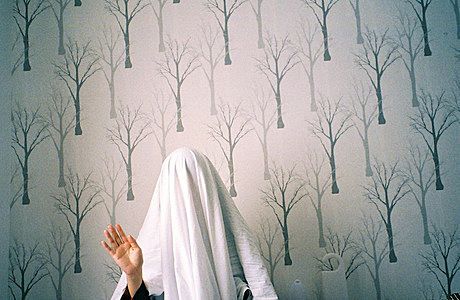Islamophobia: A Personal Reflection
One week on from the terror attacks in Ōtautahi, Hala Nasr reflects on growing up Muslim in Aotearoa.
One week on from the terror attacks in Ōtautahi, Hala Nasr reflects on growing up Muslim in Aotearoa.
I woke up to a surreal realisation. It feels familiar, deep in my bones yet disembodied in the anxious discourse of dismissal, from friends, colleagues, and even people from my community. In Aotearoa New Zealand, we are not exceptional, we are not a utopia far from the world’s problems, we are its mirror reflection. Our problems are local and situated, but also global and messy. I can’t shake the thought: I told you so. Why didn’t you believe me?
I grew up centred by Tīkapa Moana and Islamic bedtime stories. Playing netball (goal attack for life) in a miniskirt, and Friday prayers in a hijab with my baba. Parties on Saturday night and Arabic School on Sunday. When I hear tuis sing or see pīwakawaka dancing, my heart literally leaps. Do you see me?
When I was eight, drawing my self-portrait, a Pākehā girl in my class grabbed the beige crayon out of my hand, telling me to use the dark brown crayon instead. I refused to go to school that week. I never told my mama why.
When I was eleven, I watched a terrorist attack unfold on a television in class. That day, my predominantly Pākehā classmates connected me to the terrorists, and for weeks asked me why my mother wore a scarf on her head. I would hide in the library at lunch times. I never told my mama.
When I was 19, a boy I liked told me it wouldn’t work because I was a Muslim, and my family were Muslim. His mother wouldn’t approve. I didn’t bother telling him: neither would mine.
When I was 20, a university lecturer told my third-year Political Science class that Week 10’s class was on Muslim terrorism. I asked about right-wing terrorism. He told me to sit down and shut up. I looked around at my predominantly Pākehā peers, no one said anything. I left.
When I was 25, my mama, who wears a hijab, was assaulted in Milford Mall (our local for over 25 years), and told to “get out of New Zealand.” The management staff did nothing despite our complaints.
When I was 26, Neo-Nazis delivered boxes of pig heads to the Al Noor Mosque in Christchurch, while saluting Hitler and calling for Muslims in Aotearoa to be ‘culled.’ I felt uneasy visiting Christchurch for work. I didn’t feel I could tell my boss or colleagues.
When I was 27, white supremacists were given platforms to visit and speak to sold-out venues in Australia and Aotearoa. When Muslims objected, we were told that we were exaggerating, that we were the enemies of freedom. In the end, their freedom of speech was prioritised over our lives.
I’m 28 now, and on that Friday night, my mother said to me: “I can’t have 80 children’s lives on my conscience, ya Hala.” She had decided to cancel Sunday School that weekend. She has volunteered, managing and teaching Arabic and Islam to children in the Muslim community of the North Shore, for almost 20 years with other women in our community – ten years of which my sister and I attended. The police have asked that the Sunday School stay closed till further notice.
My sister told me not to worry, “I brought our cats inside in case they want to target Muslim cats, too.” We laughed, and then we cried.
the culmination of my lived experiences, and many others which I can’t bring myself to repeat, rests under the surface of my discomfort with the ‘They Are Us’ solidarity statements
Since Friday, grief has come in waves, as has the awhi from Pākehā and non-Muslims. I understand the need Pākehā and non-Muslims feel to make up for their past indifference or to reiterate that Muslims are just as much of here as anyone else. But the culmination of my lived experiences, and many others which I can’t bring myself to repeat, rests under the surface of my discomfort with the ‘They Are Us’ solidarity statements.
It feels like negation, not just of my own lived experiences, but also of our own history as a nation. Because, while Friday was a dark day, maybe one of the darkest, Aotearoa’s settler-colonial history is a long white-supremacist storybook. I will not pretend it is new, that it is exceptional, that I didn’t see it coming. I did, and you should have too.
Even now, even in wake of the terrorism against my community, some Pākehā and non-Muslims have found it hard to hear this. I have experienced their endless need to ‘explain’ my feelings on this away. In one breath, mourned and warned.
In this moment in our nation’s history, there’s nothing else to do here but learn from the past and do better:
Honour the Treaty.
Hold racists accountable (describing the racism you witnessed to your non-White friend after the fact does not count).
Vote in more representative politicians.
Join and organise with your local anti-racist, anti-colonial organisations.
Learn to recognise and dismantle your white privilege and entitlement (Me and White Supremacy Workbook by Layla F Saad is a good start).
Actively listen and privilege the knowledge and experiences of Māori and non-White migrant communities.
He waka eke noa – we are all in this together.
Salam Alaikum.
Illustration: Huriana Kopeke-Te Aho

